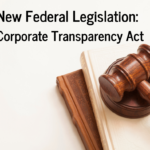Two federal appeals court issued conflicting rulings today on whether the government could offer subsidies in the form of tax credits on health insurance premiums for people in approximately 36 states who purchased insurance on federally-run exchanges under the Affordable Care Act.
U.S. Court of Appeals for the District of Columbia Circuit: Government CANNOT Subsidize Insurance for People in States that Use Federal Exchange
This morning, the U.S. Court of Appeals for the District of Columbia, in a 2-1 vote, ruled that the government could not subsidize insurance for people in states that use the federal exchange. The District of Columbia panel held that subsidies are available only to those who obtained insurance through exchanges established by states. The District of Columbia panel went on to state that the Affordable Care Act “does not authorize the Internal Revenue Service to provide tax credits for insurance purchased on federal exchanges” and that the law “plainly makes subsidies available only on exchanges established by states.”
The result of this court decision could cause insurance premiums for many people to increase sharply, making health insurance unaffordable for many. The White House rejected the District of Columbia panel’s ruling and it is anticipated that the Justice Department will ask for the issue to be reviewed by the entire appeals court. Additionally, the Obama administration has said that people would continue to receive subsidies during the appeal process.
U.S. Court of Appeals for the Fourth Circuit: Government CAN Subsidize Insurance for People in States that Use State or Federal Exchanges
Just hours after the District of Columbia panel decision, the Fourth Circuit Court of Appeals reached the opposite conclusion, upholding the Internal Revenue Service rule. The Fourth Circuit held that the language in the Affordable Care Act on subsidies “is ambiguous and subject to multiple interpretations.” The Fourth Circuit held that it would give deference to the reading of the law by the Internal Revenue Service, as it issued the rule allowing payment of subsidies for people in all states, regardless of whether that state had a state or federal exchange.
Additional Lawsuits Pending
Additional similar lawsuits challenging subsidies are pending in other courts. Depending on how this conflict is resolved between the courts, the ultimate decision could have lasting effects on the functionality of other parts of the Affordable Care Act including the provision requiring large employers to pay penalties if they do not offer affordable health coverage to full-time workers. These penalties are triggered when a worker receives federal subsidies for purchasing insurance on an exchange.
For additional information about the Affordable Care Act, including how these decisions may impact your business, please contact KDDK attorney Ashley Hollen (formerly Ashley Bess) at ahollen@KDDK.com or (812) 423-3183, or contact any member of the KDDK Tax and Employee Benefits Law Practice Team.
About the Author

Ashley R. Hollen (formerly Ashley R. Bess), an attorney at Kahn, Dees, Donovan & Kahn, LLP (KDDK), in Evansville, Indiana, practices in the areas of business law, tax and employee benefits law, environmental law, real estate law, contract negotiation and creditors’ rights and collections. Ashley earned her B.S. in political science magna cum laude from the University of Evansville, and her J.D. magna cum laude from Valparaiso University School of Law.




